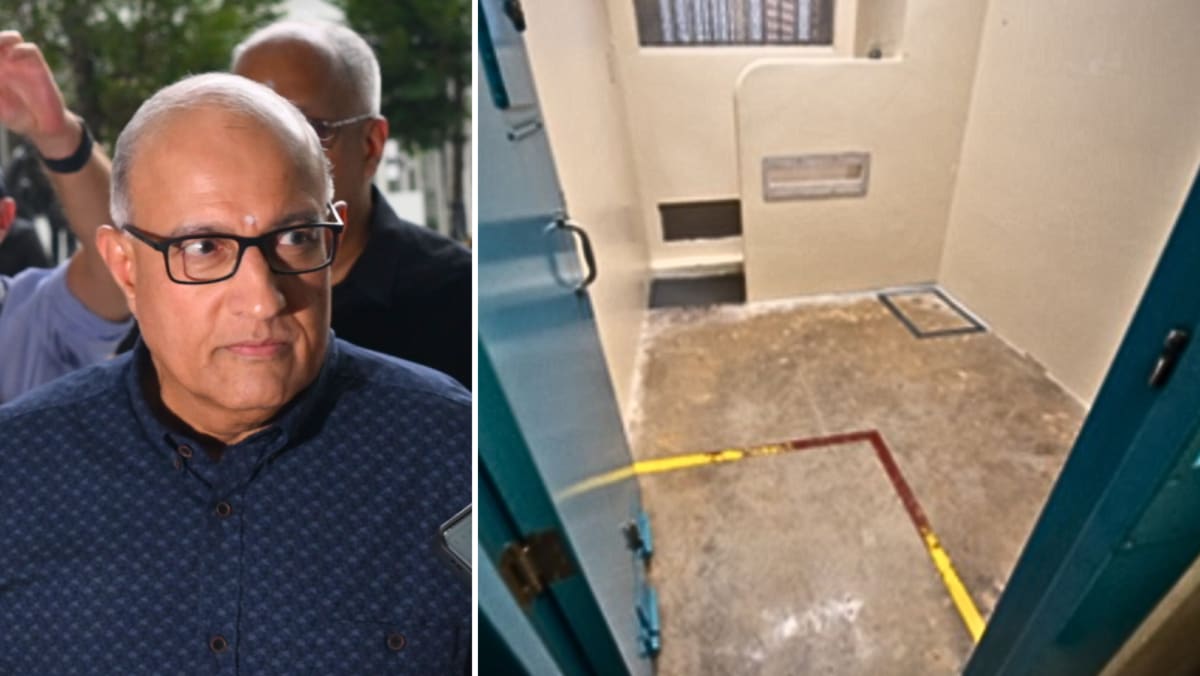SINGAPORE: Former transport minister S Iswaran was placed in a single-man cell in prison to protect him from those who might want to harm him due to his previous positions as minister, legal experts told CNA.
Iswaran, 62, began serving his sentence on Monday (Oct 7) after announcing that he will not appeal his 12-month jail term, handed down by the High Court last Thursday.
Iswaran had earlier pleaded guilty to five charges, comprising four of accepting valuable items as a public servant, and one of obstructing justice.
In response to CNA’s queries, the Singapore Prison Service (SPS) had said that Iswaran had been housed in a single-man cell due to “higher safety and security risk” if he were to be housed with other inmates. The authority did not elaborate on what these risks might be.
Lawyers not linked to the case told CNA that Iswaran would be at higher risk of harm due to his status as a former politician and minister.
“There may be inmates who may be motivated to cause him harm or fear of harm because they are not happy with him, be it for what he stood for when he held office or for the fact that they feel outraged that a person of his position committed such offences,” Mr Sanjiv Vaswani, managing director of Vaswani Law Chambers.
Concurring, veteran lawyer Ramesh Tiwary, who has an eponymous law firm, said that the authorities would not want to house Iswaran with inmates who might harass him.
He disagreed with the possibility that Iswaran might leak state secrets during his period of incarceration.
“The way I see it: There are people serving imprisonment or (who are) remanded who may not be very happy with the establishment, with the system, and who may try to pick on him,” said Mr Tiwary.
“You can’t keep your eyes on somebody 24 hours. I think to be on the safe side, they are just segregating him at this moment.”
The lawyer added that segregating an inmate was not uncommon, especially if there was a threat to the person’s safety.
He gave the example of a prison officer who commits a crime and is jailed.
“You may have people in prison who are very unhappy with you,” said Mr Tiwary, adding that SPS would then have to take precautions.
Other prisoners could be placed in single-man cells to prevent the spread of disease, like during the COVID-19 pandemic, or simply because that was the only cell available, he said.
“It is not an uncommon thing. I’ve known many of my clients to be in single-man cell sometimes, for a period of time. And they might move (Iswaran) after a while, you never know.”
Mr Vaswani said that while prison conditions are austere, they are not meant to be a “torture”.
“Prisoners are treated humanely. Where there is a known potential risk to their safety, it only makes sense for them to be segregated,” he said.

